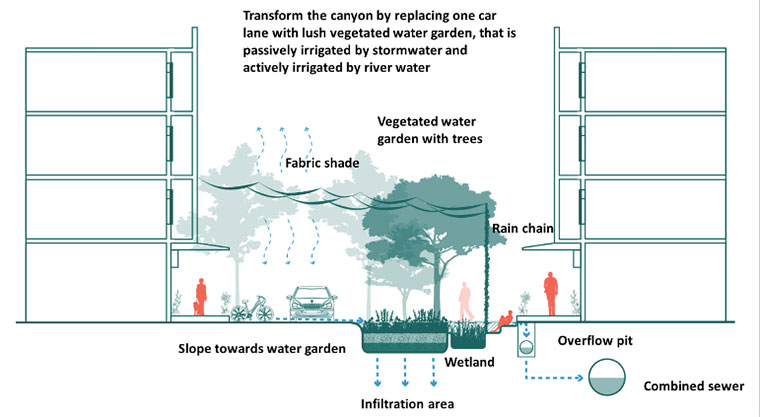Following a review of our operating model, access arrangements for the Water Sensitive Cities (WSC) tools are changing. As we transition from a centrally funded model to a fee-for-service approach, we remain committed to supporting the sector in its continued uptake and application of these tools.
Protecting headwater streams: Ideas for Aitken Creek
A new report outlines ways to protect sensitive headwater streams under pressure from urban development.
Transforming Thailand’s Western Lower Chao Phraya River basin with multifunctional blue–green corridors
A new project between WSCA, Chulalongkorn University and Thailand’s Royal Irrigation Department is exploring ways nature-based solutions can help mitigate flooding and support agriculture and eco-tourism.
Water Sensitive Cities Australia at OzWater2025
Chris Manning (WSCA Mainstreaming Lead) and Katharine Cross (WSCA International Lead) spread Water Sensitive Cities messages at the OzWater2025 Conference in Adelaide.
Monitoring nature-based solutions using low-cost IoT sensors
We’re working with local stakeholders in Mekong countries to build their capacity to monitor the environmental outcomes of nature-based solutions.
Shaping inclusive climate policy through real stories
Our research on inclusive climate policy in Viet Nam is gaining traction – with 2 recent outputs highlighting key messages.
Share your insights: Survey on the Mainstreaming Program
Water Sensitive Cities Australia’s mission is to change the way cities are designed, built and managed by valuing water’s contribution to economic development, quality of life and the ecosystems of which they are a part.
Making a ‘RUCaS’: Experts gather in Bangkok to scale nature-based solutions for climate-resilient cities
The urgency to turn climate ambition into action echoed through every session of the “Nature-based Solutions in Urban Contexts” Conference held in Bangkok last week, as over 140 attendees from across the Mekong subregion and beyond came together to tackle the challenge of scaling Nature-based Solutions (NbS) in cities. Another 180 people joined online for the plenary sessions
Cooling cities using green open spaces
A recent rapid review showed the potential impact green spaces can have on cities in Southern Australia and tropical cities in Asia.
Applying nature-based solutions to create resilient urban centres
We’ve published our RUCaS case study reports, demonstrating how nature-based solutions can be applied in 8 Mekong locations.









